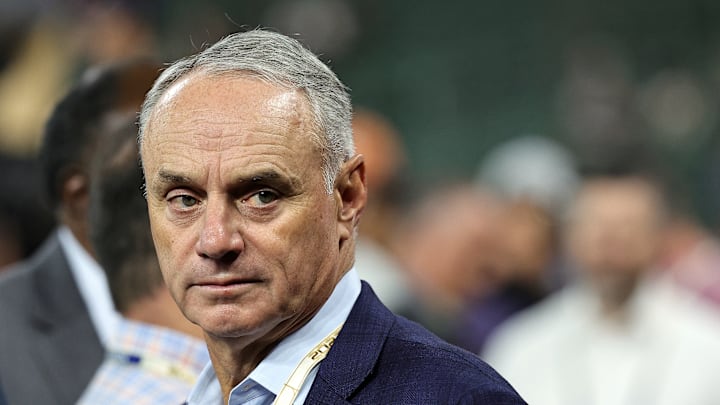The Red Sox found the perfect extension for Rafael Devers
The Red Sox did budge on their stance regarding long-term deals when they signed Rafael Devers to an 11-year, $331 million extension. The difference is that Devers is only 26 years old. He'll be 36 in the final year of his deal, an age where he could conceivably still be a productive hitter.
The Devers extension is a perfect example of how the Red Sox would prefer to handle retaining their stars. Not only do they not have to worry about paying Devers a star's salary until he's approaching his 40th birthday, but the deal also doesn't include opt-outs.
The Red Sox had Bogaerts on a team-friendly deal that he was essentially guaranteed to opt out of as long as he was healthy. That put the team in an awkward position. They still wanted him for the next several years but not for another decade. Perhaps if they paid him more over the course of his previous contract, they could have avoided the inclusion of the opt-out clause that led to his departure. There are no such concerns with the Devers deal.
An opt-out clause came back to bite the Padres with the contract for Bogaerts' new teammate, Manny Machado. The Padres signed the star third baseman to a 10-year, $300 million deal in 2019 that included an opt-out after the 2023 season, which Machado threatened to trigger if he wasn't given an extension. San Diego ended up giving him a new 11-year, $350 million deal earlier this year to prevent Machado from hitting free agency after this season. Instead of having Machado locked into a deal that pays him $30 million per year until he's 35 years old, the Padres gave him a raise on a new deal that lasts until he's 40. San Diego will ultimately end up paying Machado about $500 million between the two contracts, well more than they initially signed up for.
The current market is extremely favorable to the players. Teams are handing out mammoth deals to star players that extend beyond their prime. The opt-out clauses are becoming more common, giving players more of an advantage. If they perform to the expectations of their deal and the market explodes, they will opt out to get a bigger contract. If their performance declines or they get injured, they have the security of the years remaining on that existing deal.
We don't know if MLB's reform plans would address opt-outs but it might be a moot point if contract limits are short enough to make the clauses less appealing. Even if that's not the case, shorter deals would still fit into Boston's plans.
Unless the market shifts again with teams pivoting away from decade-plus long deals, the Red Sox will continue to be at a disadvantage to acquire the top free agents or retain their own stars until they change their stance on contract lengths. If Manfred and the MLB owners succeed in their goal to implement limitations, they will have found the solution for them.
